When looking at the infrastructure being built around us, one cannot help but be struck with a sense of awe. Sensors everywhere, high speed rails, buildings, bridges and roads that think, feel and adapt on their own accord. The wave of intelligence sweeping through infrastructure imparts a sense of pride. However, this sense of pride does not last long.
While Americans pioneered much of the infrastructure advancements of the 20th century, the U.S. has unfortunately lagged in investments that are necessary to refresh our vast infrastructure. Most of today’s innovations are being implemented in other countries, where they have the advantage of starting from a blank slate. Many of the roads and bridges we drive on here are over 100 years old, and most of the highways are over 60. While the economies of China and Japan grow because of their advanced infrastructure, most of us cannot even drive into work without hitting a pothole. America’s infrastructure is at the edge or past its useful life, and much of it is crumbling.
At our college, we have made it a priority to improve America’s infrastructure in two ways. First, we are trying to push the boundaries of intelligent infrastructure through novel innovation that leads to implementation. At the same time, we are also working to extend the useful life of the existing infrastructure in both our country and state.
As South Carolina’s flagship university, it’s our responsibility to improve all facets of life for South Carolinians. And our university’s president, Bob Caslen, has made this a top priority. That’s why we have partnered with the South Carolina Department of Transportation through a $1.7 million grant to improve the durability and performance of the state’s roads. It’s why we are pushing the boundaries of digital twin technology to make South Carolina’s bridges safer and less expensive to repair. It’s why we are putting artificial intelligence at Columbia’s rail crossings to help our city’s first responders.
Like all great flagship universities, we don’t take this responsibility lightly. But we also aren’t limiting the focus of our work — or its impact — to just our state’s borders.
Through structural health monitoring, we are improving the safety of aircraft and nuclear containers. We are partnering with the National Institute on Aging to develop in-home monitoring of the elderly through acoustic sensing of their gait. We are even preparing our students for diverse futures in the field: from leading classrooms to managing multi-million-dollar infrastructure projects.
As the world around us grows smarter, our country must grow smarter with it. And here at the University of South Carolina College of Engineering and Computing, I am proud to say that we are leading this charge to improve the lives of all Americans. Please take a few minutes to learn more about the work we are doing in intelligent infrastructure; work that is evolving and involving all branches of engineering and computing. We hope that this cutting-edge research, and similar work in other research institutions, makes you optimistic about the future of our country’s infrastructure.
Sincerely,
Hossein Haj-Hariri
Dean of the UofSC College of Engineering and Computing
Our Intelligent Infrastructure Highlights:
-

Digital twins to improve bridge assessment in rural South Carolina
-
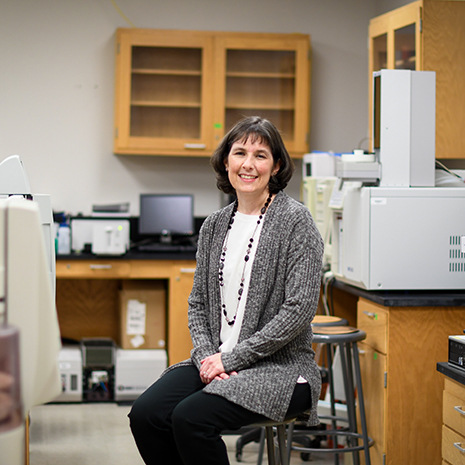
Are nanomaterials causing larger environmental problems?
-
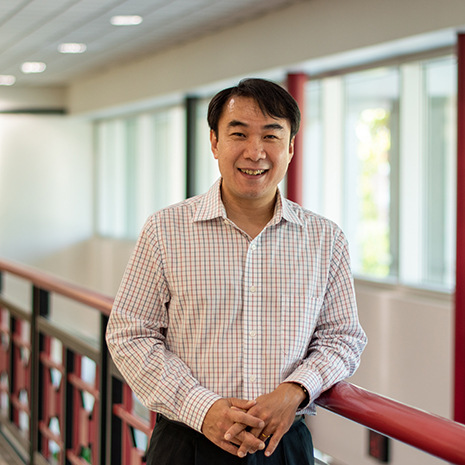
Huynh receives High Value Research award for research on road signs
-
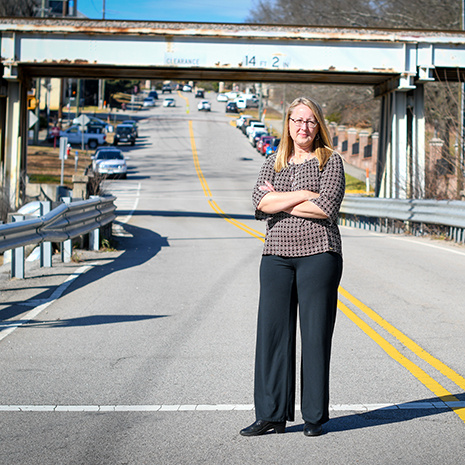
CEC works to improve South Carolina's road pavement design
-

Alumni Spotlight: How Casey Lucas helps keep South Carolina moving forward
-
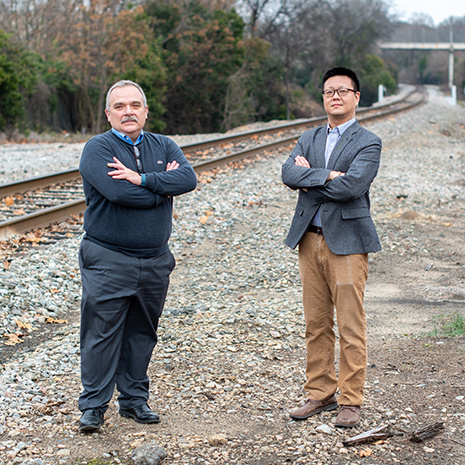
Conducting change: How UofSC is evolving America's railroad system
-
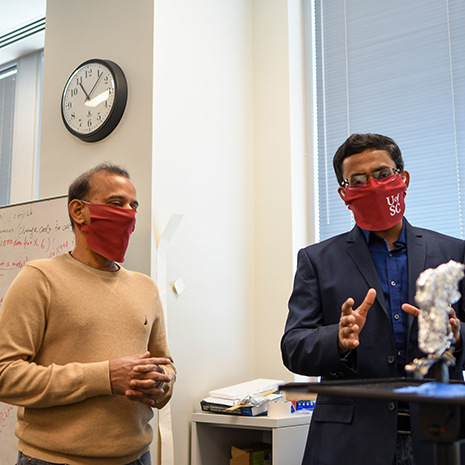
UofSC researchers to acquire instrument for measurement of ground truth
-
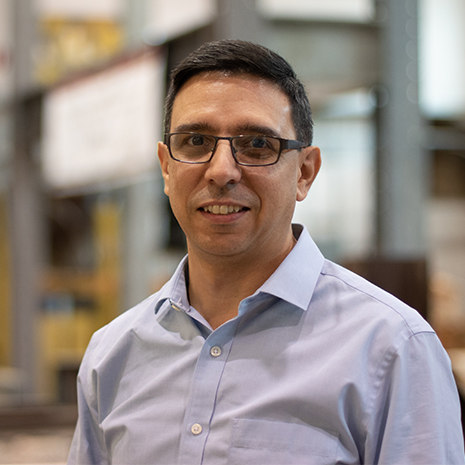
Caicedo leads project to promote independent living in older adults
-

UofSC power electronics team reimagines America’s energy grid
